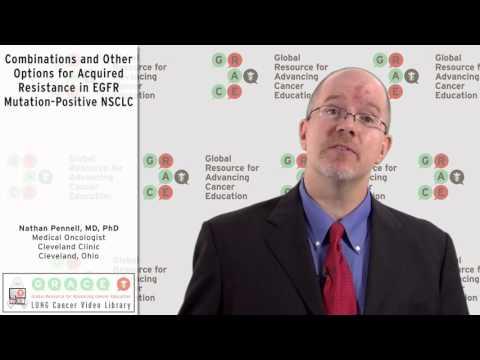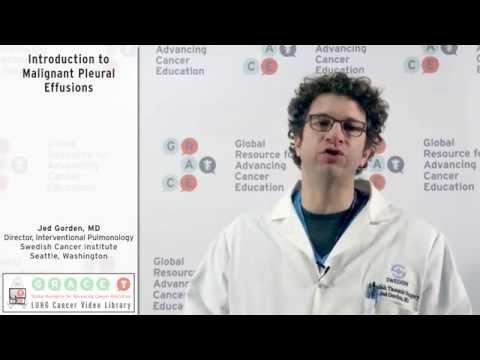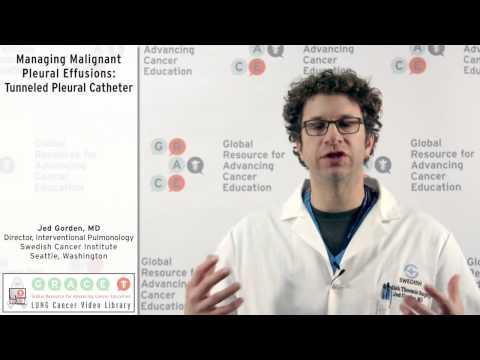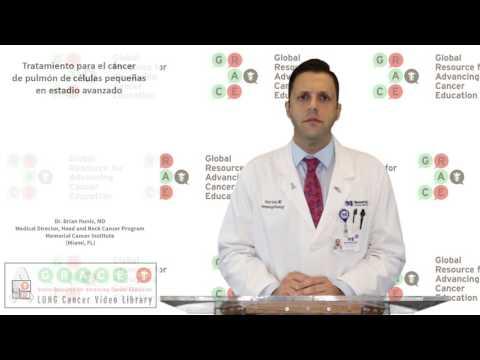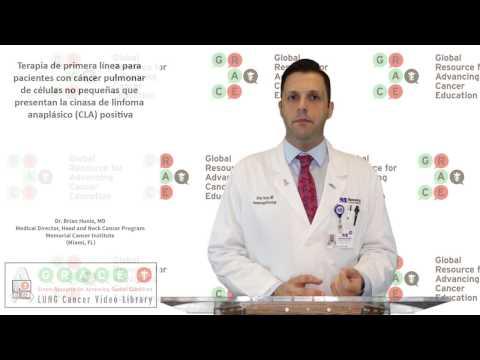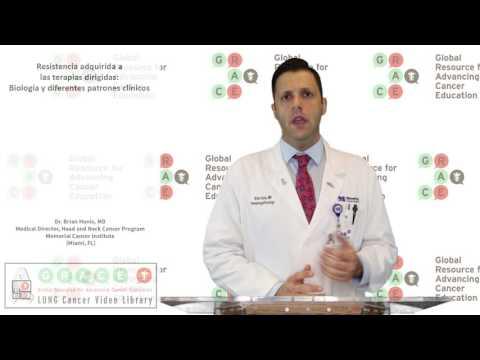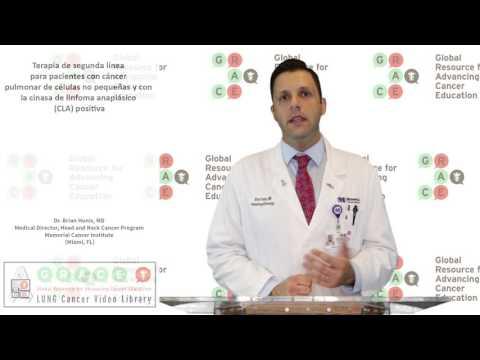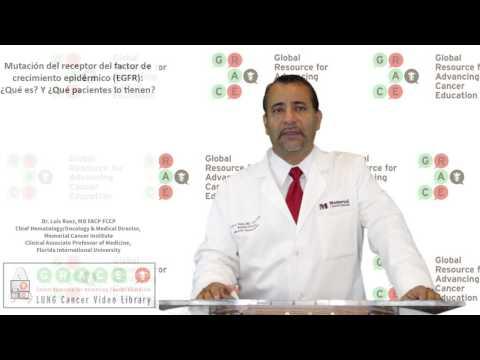Dr. Jared Weiss, UNC Lineberger Comprehensive Cancer Center, discusses the genetic risk (or lack thereof) for lung cancer.
Video Library
Search the Video Library
Video Language
Filter by Cancer Type:
Displaying Results 1 - 15 of 54
Dr. Nathan Pennell, Cleveland Clinic, describes other options for treatment of acquired resistance, including chemotherapy, ablation with SBRT and a combination of Gilotrif and Erbitux.
Please Note: New Treatments Have Emerged Since this Original Post
Dr. Nathan Pennell, Cleveland Clinic, discusses the concept of acquired resistance and new agents designed to address it, including Rociletinib and Merelitinib.
Interventional pulmonologist Dr. Jed Gorden reviews malignant pleural effusions (MPEs) are a common complication of lung cancer and some other cancers. Transcript So, I wanted to talk to you today about pleural effusions. Pleural effusions — it’s a complex term, and it’s a very common problem, so
Dr. Jed Gorden describes the details of how a thoracentesis is performed in order to clarify the diagnosis and treat symptoms of a malignant pleural effusion (MPE). Transcript With the pleural fluid that’s built up around the lung — this fluid that exist in between the linings, or as we discussed
A tunneled pleural catheter is an excellent way to manage the symptoms of a recurrent malignant pleural effusion. Dr. Jed Gorden describes how it is placed and how it works. Transcript So we’re talking today about pleural fluid — fluid that resides around the lung, in-between this space that we’re
Dr. Jed Gorden reviews the technique of pleurodesis to manage the complication of recurrent malignant pleural effusion (MPE). Transcript So we’re talking today about pleural fluid, the fluid that builds up around the lung — fluid that causes people be short of breath, often have symptoms like cough
Dr. Ross Camidge, University of Colorado, addresses the question of whether to use a second generation ALK inhibitor as first line therapy or only after acquired resistance to crizotinib.
Dr. Nathan Pennell, Cleveland Clinic, discusses acquired resistance to Xalkori in ALK-positive patients, and second generation inhibitors designed to overcome that resistance, such as Zykadia and alectinib.
Dr. Jared Weiss, Vice President of GRACE and Associate Professor at UNC-Chapel Hill in Clinical Research, and the Thoracic Oncology Program at UNC Lineberger, discusses First Line EGFR-Based Therapy For Advanced Squamous Non-Small Cell Lung Cancer (NSCLC).
For our 15th video in the GRACE Spanish Lung Cancer Library, Brian Hunis, MD joined GRACE to discuss treating later stage small cell lung cancer.
For our 17th video in the GRACE Spanish Lung Cancer Library, Brian Hunis, MD joined GRACE to discuss first line therapy for NSCLC patients that have anaplastic lymphoma kinase (ALK) positive.
For our 18th video in the GRACE Spanish Lung Cancer Library, Brian Hunis, MD joined GRACE to discuss acquired resistance to targeted therapies: biology and different clinical patterns.
For our 19th video in the GRACE Spanish Lung Cancer Library, Dr. Brian Hunis, joined GRACE to discuss the basics of Lung Cancer for Spanish-speaking patients and caregivers. In this video Dr. Hunis discusses second line therapy for NSCLC patients who are ALK positive.
Dr. Luis Raez, MD FACP FCCP, Chief of Hem/Onc and Med. Dir. at Memorial Cancer Institute, and Clinical Associate Prof. of Medicine at FL International University joined GRACE to discuss EGFR mutation: what is it, and which patients have it?


